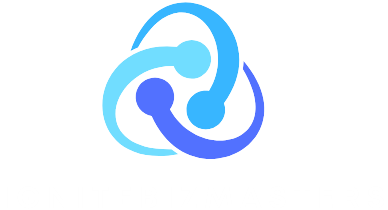Table of Contents
ToggleIn a world where smartphones are practically an extension of our hands and AI is the new kid on the block, understanding human behavior has never been more crucial. As technology evolves at lightning speed, it’s not just our gadgets getting smarter; so are we—at least most of the time. From the way we interact with virtual assistants to our obsession with social media likes, the relationship between humans and technology is a wild ride filled with quirks and surprises.
The Intersection of Human Behavior and Emerging Technologies
Human behavior increasingly shapes and adapts alongside emerging technologies. The integration of artificial intelligence into daily life exemplifies how technology alters interaction patterns. Many people rely on virtual assistants for tasks ranging from reminders to controlling smart home devices. These behaviors demonstrate reliance on technology for efficiency and convenience.
Social media platforms further illustrate this intersection. Users engage with these platforms to communicate, share experiences, and seek validation. Research indicates that frequent social media interaction influences self-esteem and social skills, highlighting behavioral changes prompted by technology.
Emerging technologies also raise ethical questions concerning privacy and data security. Users often share personal information for convenience, yet this can lead to unintended consequences, such as data leaks or misuse. Awareness of these issues shapes user behavior towards more cautious online interactions.
Technological advancements impact not only individual behavior but also social dynamics. For instance, remote work technology transforms workplace relationships and communication styles. Hybrid work environments enhance flexibility but can diminish face-to-face interactions, altering traditional team dynamics.
Understanding these intersections aids businesses in designing better user experiences. Companies leveraging insights on human behavior can create products that not only meet functional needs but also align with emotional and psychological aspects. This understanding can drive user engagement and loyalty in an increasingly competitive market.
Awareness of these trends is essential for policymakers as well. Regulations surrounding technology usage must evolve in response to behavioral changes. Striking a balance between innovation and safeguarding individual rights becomes vital in navigating this complex landscape.
Impact of Emerging Technologies on Human Behavior
Emerging technologies significantly shape human behavior, influencing how individuals interact and form connections with one another.
Social Interactions and Connectivity
Social media platforms enable instant communication, fostering unprecedented levels of connectivity among users. Many now maintain relationships primarily through digital means, often prioritizing online interactions over face-to-face encounters. Communication styles evolve as emojis and gifs supplement text, creating new ways to express emotions. Users often seek to curate their online personas, which can lead to increased pressure to present an idealized version of themselves. Such dynamics spark discussions about authenticity and self-image. Understanding these patterns offers valuable insights for businesses looking to enhance user engagement and connection.
Behavioral Changes in the Digital Age
Digital technologies reshape daily routines, with many individuals turning to smartphones for multiple tasks. Convenience plays a vital role, as users rely on apps for everything from shopping to fitness tracking. Instant access to information drives expectations for immediate responses, altering patience levels in personal and professional contexts. Content consumed online influences behavior, with algorithms tailoring suggestions based on preferences and previous interactions. This creates echo chambers, potentially limiting exposure to diverse perspectives. Recognizing these changes enables businesses and policymakers to respond effectively, fostering healthier technology use and promoting balanced lifestyles.
Psychological Implications of Technology Use
Understanding the psychological implications of technology use reveals significant insights into user behavior and mental health impacts. Emerging technologies shape opinions, interactions, and lifestyle preferences.
Addiction and Dependency
Technology fosters addiction and dependency through constant connectivity. Many individuals find themselves reaching for smartphones at every moment. Notifications create a cycle of compulsive checking, reinforcing the attachment to devices. Research indicates that excessive screen time can lead to withdrawal symptoms when access is restricted. Social media platforms employ algorithms designed to maximize user engagement, contributing to prolonged interactions. Gamification keeps users returning for their immediate rewards, deepening the dependency. Instances of reported anxiety and restlessness reflect this growing trend, highlighting the importance of self-regulation in tech use.
Effect on Mental Health
Technology’s impact on mental health manifests in both positive and negative ways. Increased social media use correlates with heightened levels of anxiety and depression in some individuals. Comparison culture thrives online, where users frequently measure their lives against curated portrayals of others. Conversely, technology offers opportunities for support through online communities and mental health resources. Accessibility to therapy via apps provides help for those who might otherwise avoid traditional methods. The dual nature of technology showcases its potential to enhance or degrade mental wellness, emphasizing the need for mindful interactions.
Ethical Considerations and Challenges
Emerging technologies present unique ethical dilemmas. Privacy concerns stand out prominently in today’s digital landscape. Users frequently share personal information online, often unaware of potential risks. Data leaks can lead to identity theft or unwanted exposure. Companies must prioritize transparency when collecting user data. Implementing strong encryption and security measures can foster trust and protect individual rights.
Manipulation and misinformation pose additional challenges. Social media algorithms may promote misleading content, shaping public perception. Confirmation bias can flourish as users are exposed to repetitive narratives. Users might unknowingly propagate false information, further complicating societal discussions. It’s essential for platforms to monitor and regulate content distribution. Developing educational initiatives can empower users to critically assess information sources, enhancing media literacy and discernment.
Future Trends in Human Behavior and Technology
The integration of artificial intelligence (AI) into daily life presents clear shifts in communication preferences. Users increasingly depend on virtual assistants for daily tasks, signaling a trend towards enhanced efficiency. Social media platforms continuously evolve, shaping how individuals interact and seek validation. Changes in user behavior reflect both the benefits and drawbacks of technology’s influence on social skills.
Technology’s impact on workplace dynamics illustrates evolving relationships among colleagues. Remote work fosters new communication styles, emphasizing digital interactions over in-person encounters. Meanwhile, smartphone reliance reshapes daily habits, with many experiencing impatience due to instant gratification expectations. Algorithms increasingly curate experiences, often confining exposure to diverse ideas, raising concerns about echo chambers.
Data privacy and security issues emerge as significant considerations for users navigating this landscape. Many individuals willingly share personal information, yet they remain unaware of potential ramifications. Transparency in data collection becomes crucial for companies, requiring them to reinforce security measures. Users now prioritize platforms that protect their rights while fostering trust through responsible practices.
Mental health implications arise from pervasive technology use. Social media connection correlates with rising anxiety and feelings of inadequacy, fueled by comparison culture. Conversely, online support communities offer valuable resources, providing a counterbalance to these negative effects. Mindful engagement with technology supports healthier habits, as individuals seek more balanced lifestyles.
Policies surrounding technology must adapt to reflect these behavioral shifts. Regulations addressing privacy, security, and mental health will serve to safeguard individual rights as technology continues to evolve. By understanding the intricate relationships between human behavior and technology, businesses can create enhanced user experiences tailored to emotional and functional needs.
Understanding human behavior in the context of emerging technologies is crucial as society navigates this rapidly changing landscape. The interplay between technology and human interaction shapes communication styles and influences mental health. As individuals adapt to these advancements it’s essential to prioritize ethical considerations around privacy and data security.
By fostering mindful engagement with technology, users can create healthier habits that support their well-being. Policymakers and companies must work together to ensure transparency and protect individual rights in this complex environment. Ultimately, embracing the dual nature of technology can lead to enriched experiences while addressing the challenges it presents.




